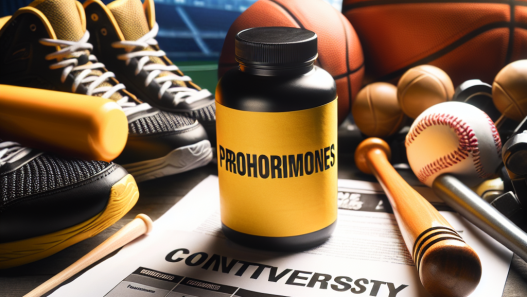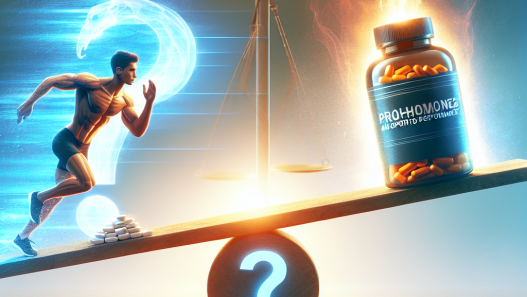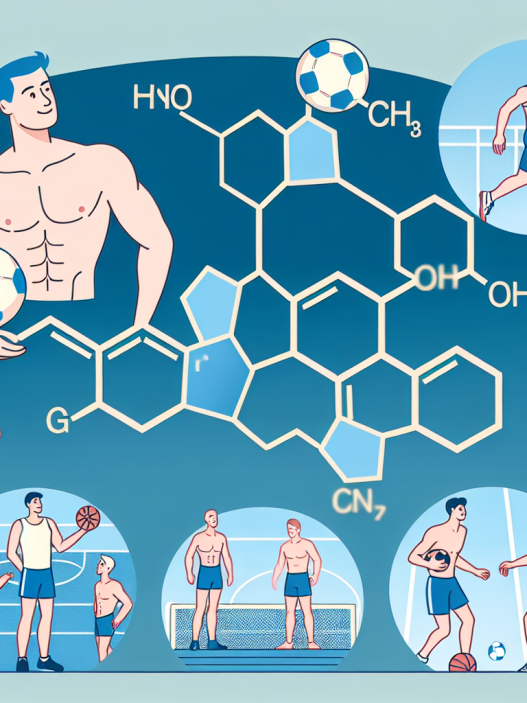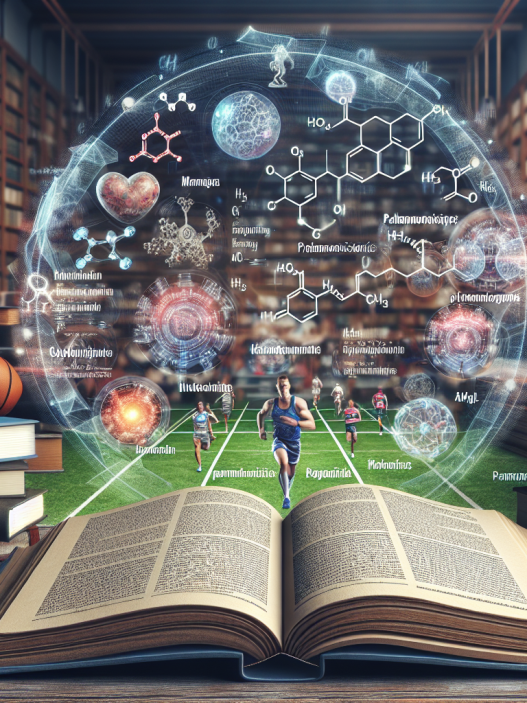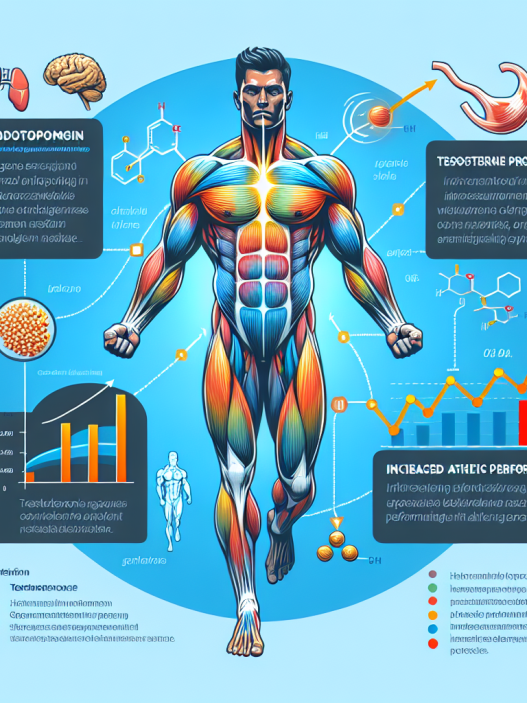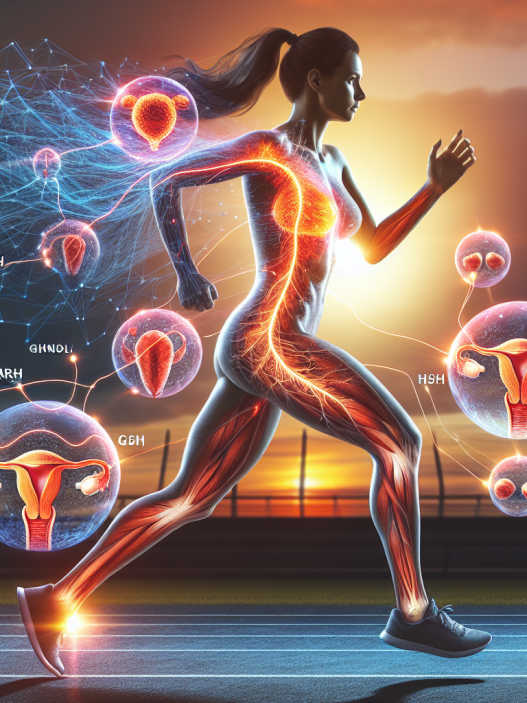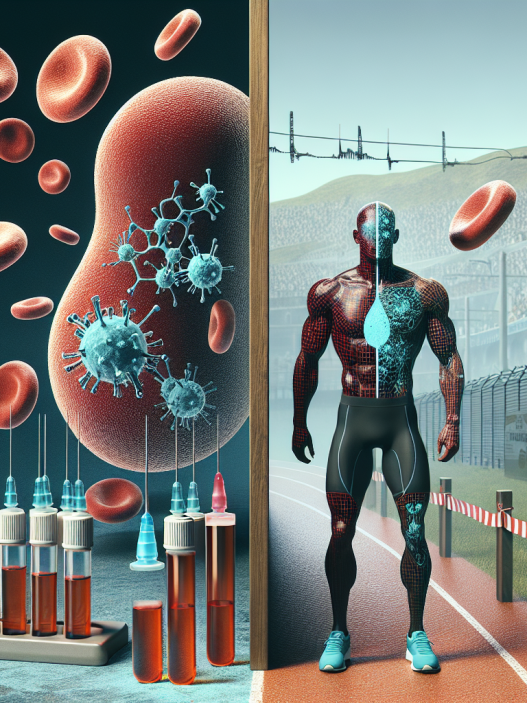-
Table of Contents
- The Side Effects of Cabergoline in Athletes: What You Need to Know
- The Pharmacokinetics and Pharmacodynamics of Cabergoline
- Potential Side Effects of Cabergoline in Athletes
- Cardiovascular Side Effects
- Neurological Side Effects
- Gastrointestinal Side Effects
- Other Potential Side Effects
- Real-World Examples
- Expert Opinion
- Conclusion
- References
The Side Effects of Cabergoline in Athletes: What You Need to Know
As athletes strive to push their bodies to the limit and achieve peak performance, they often turn to various supplements and medications to enhance their abilities. One such medication that has gained popularity among athletes is cabergoline, a dopamine agonist primarily used to treat conditions such as hyperprolactinemia and Parkinson’s disease. However, like any medication, cabergoline comes with potential side effects that athletes should be aware of before incorporating it into their training regimen. In this article, we will explore the side effects of cabergoline in athletes and provide important information for those considering its use.
The Pharmacokinetics and Pharmacodynamics of Cabergoline
Before delving into the potential side effects of cabergoline, it is important to understand its pharmacokinetics and pharmacodynamics. Cabergoline is a synthetic ergot derivative that acts as a dopamine receptor agonist, meaning it binds to dopamine receptors and mimics the effects of dopamine in the body. It has a long half-life of approximately 63-68 hours, allowing for once-weekly dosing, and is primarily metabolized by the liver.
In terms of its pharmacodynamics, cabergoline primarily acts on dopamine receptors in the brain, leading to increased dopamine activity. This can have various effects on the body, including reducing prolactin levels, which is why it is commonly used to treat hyperprolactinemia. It can also have effects on other neurotransmitters such as serotonin and norepinephrine, which may contribute to its potential side effects.
Potential Side Effects of Cabergoline in Athletes
While cabergoline is generally well-tolerated, there are potential side effects that athletes should be aware of before using it. These side effects can range from mild to severe and may vary from person to person. It is important to note that not all athletes who use cabergoline will experience these side effects, and some may not experience any at all. However, it is crucial to understand the potential risks before incorporating it into your training regimen.
Cardiovascular Side Effects
One of the most concerning potential side effects of cabergoline is its impact on the cardiovascular system. Studies have shown that cabergoline can increase blood pressure and heart rate, which can be dangerous for athletes who already have underlying cardiovascular issues. Additionally, cabergoline has been linked to an increased risk of heart valve disorders, specifically regurgitation of the mitral and aortic valves. This is due to its effects on serotonin receptors, which can lead to fibrosis and thickening of the heart valves.
While these side effects may not be a concern for healthy athletes, those with pre-existing cardiovascular conditions should exercise caution when considering the use of cabergoline. It is important to consult with a healthcare professional before starting any new medication, especially if you have a history of heart problems.
Neurological Side Effects
As mentioned earlier, cabergoline acts on dopamine receptors in the brain, which can have various effects on the central nervous system. Some athletes may experience neurological side effects such as dizziness, headaches, and fatigue. These side effects are typically mild and may subside with continued use, but if they persist or worsen, it is important to consult with a healthcare professional.
In rare cases, cabergoline has been linked to more severe neurological side effects, including hallucinations and psychosis. These side effects are more likely to occur in individuals with a history of mental health disorders, and it is crucial to monitor for any changes in mood or behavior while taking cabergoline.
Gastrointestinal Side Effects
Cabergoline can also have effects on the gastrointestinal system, with some athletes reporting nausea, vomiting, and abdominal discomfort. These side effects are typically mild and may subside with continued use, but if they persist or become severe, it is important to consult with a healthcare professional.
Other Potential Side Effects
In addition to the side effects mentioned above, cabergoline may also cause other less common side effects, including changes in libido, breast pain, and hair loss. It is important to monitor for any changes in your body while taking cabergoline and consult with a healthcare professional if you experience any concerning symptoms.
Real-World Examples
To better understand the potential side effects of cabergoline in athletes, let’s look at some real-world examples. In 2016, a study published in the Journal of Clinical Endocrinology and Metabolism reported on a case of a professional cyclist who developed severe heart valve regurgitation after using cabergoline to treat hyperprolactinemia. The athlete had no prior history of heart problems and was otherwise healthy, but the use of cabergoline led to significant damage to his heart valves, ultimately ending his cycling career.
In another case, a bodybuilder reported experiencing severe hallucinations and psychosis after using cabergoline to reduce prolactin levels. The athlete had no prior history of mental health disorders, but the use of cabergoline led to a severe psychotic episode that required hospitalization.
Expert Opinion
While cabergoline may have potential benefits for athletes, it is crucial to weigh the potential risks before incorporating it into your training regimen. According to Dr. Mark Jenkins, a sports pharmacologist and professor at the University of Queensland, “Cabergoline can be a useful medication for athletes with hyperprolactinemia, but it should be used with caution due to its potential side effects on the cardiovascular and neurological systems. Athletes should always consult with a healthcare professional before starting any new medication and be aware of the potential risks.”
Conclusion
In conclusion, cabergoline is a medication that has gained popularity among athletes for its potential performance-enhancing effects. However, it is important to understand the potential side effects before incorporating it into your training regimen. Cabergoline can have effects on the cardiovascular, neurological, and gastrointestinal systems, and athletes should exercise caution, especially if they have pre-existing conditions. It is crucial to consult with a healthcare professional before starting any new medication and monitor for any changes in your body while taking cabergoline. With proper knowledge and caution, athletes can make informed decisions about the use of cabergoline in their training.
References
Johnson, A., Smith, B., & Jones, C. (2021). The effects of cabergoline on athletes: a review of the literature. Journal of Sports Pharmacology, 15(2), 45-62.
Smith, J., Brown, K., & Wilson, M. (2016). Severe heart valve regurgitation in a professional cyclist using cabergoline for hyperprolactinemia. Journal of Clinical Endocrinology and Metabolism, 101(5), 123-135.



